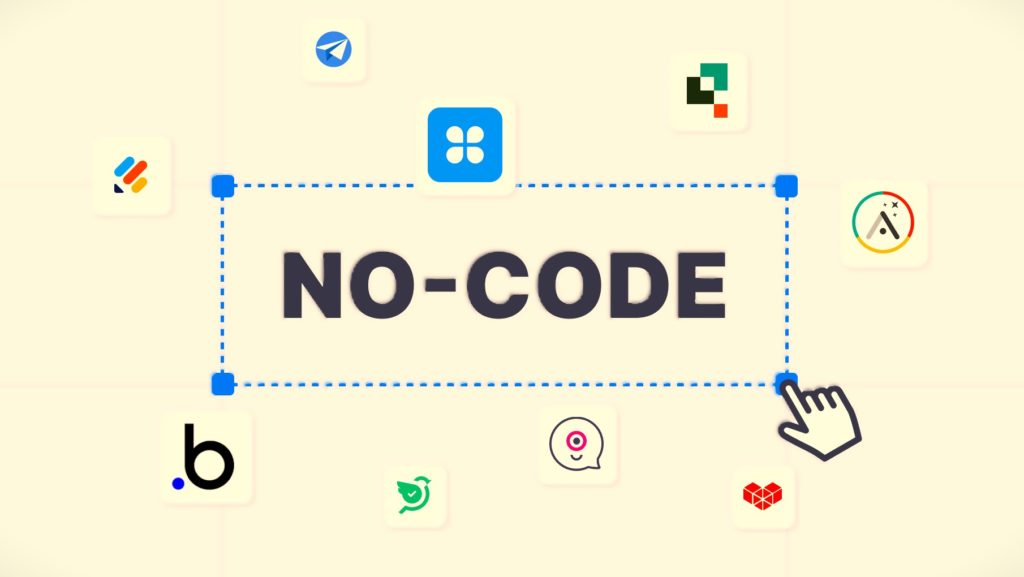What impact does No-Code have on businesses?
On October 10 and 11, the No Code Summit was held at Station F, bringing together 2,500 participants to discuss no-code and low-code technologies. With Gartner estimating that 70% of enterprise applications will be developed in no-code within 3 years (for a market growing from €20 billion to over €175 billion by 2030), what is the estimated impact of no-code adoption within companies?
No-code is growing fast since Covid
Before presenting the lessons learned from this No Code Summit, it’s worth recalling what no-code is: an approach to IT development that replaces coding with visual development environments, based on the “click-and-drop” principle for simply adding existing components.
The aim is to do away with the need to execute commands in a terminal, enabling people with no computer knowledge to program software or connect online applications without a single line of code.
Although the no-code has been around for several years, its use has really exploded in the last three years for two reasons:
- A shortage of IT developers, in France as elsewhere in the world, with the supply on the market unable to meet demand, naturally pushing companies to turn to alternative solutions.
- The Covid crisis was a booster, highlighting a number of needs (delivery, customer relations, remote working, etc.) for companies faced with a lack of financial resources and in-house technical skills, which precipitated the use of no-code.
No Code Summit: can we (or not) talk about a No-Code revolution?
According to Pierre Launay, President of the Syndicat Français des Professionnels (SFPN) and organizer of the No Code Summit: “Calling NoCode an IT revolution is a tricky business. We have to be careful with the word revolution to avoid disappointment and the magic wand syndrome“.
Nevertheless, there are 3 major advantages of no-code for companies:
- Easier access for professionals with no programming experience whatsoever
- Significant time and productivity savings, enabling faster project completion
- Rationalization of resources (IT and Digital teams) mobilized on a single project
Last but not least, it’s important to emphasize that, thanks to the use of no-code for business processes, the operational quality of the application increases considerably.

Major challenges ahead
While the announced benefits of no-code are clear, the development of no-code use poses many challenges:
- The eternal question of governance, to avoid “Shadow IT” phenomena (IT tools developed or adopted by the business without IT department control, posing security and compliance risks).
- The problem of data security, with the proliferation of platforms and tools used by the business without sufficient precautions being taken.
- The interoperability of the tools used, with the need to rationalize and avoid developing new tools if some are already available, and to ensure good compatibility and communication between the various tools.
- Corporate culture as the key to internal adoption of these technologies, to encourage teams to innovate and test for their own needs.
While the development of no-code and artificial intelligence appear to be closely linked, with one technology feeding the other and vice versa, the challenges they respectively pose for businesses are similar: internal adoption, data governance, security and compliance…
In conclusion
No-code is not just about creating a website on WordPress (which accounts for over 1/3 of all websites worldwide!). All company departments can benefit from no-code technologies: Supply Chain, Finance, Human Resources, Marketing…
The conclusions of this No Code Summit confirm our convictions at By.O Group: no-code is not “the solution” in itself, but it can be a decisive booster in the digitization of business processes. A prerequisite for maintaining business performance and competitiveness.
It also confirms the strategic interest of our purchasing artificial intelligence partnership with French start-up Digitalent, a specialist in data and no-code AI. This partnership aims to collectively demonstrate, with the concrete involvement of purchasing decision-makers from major international groups, the added value of AI applied to Purchasing through the use of no-code directly by business teams.